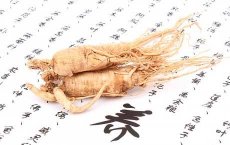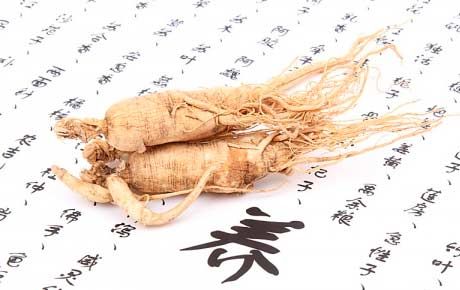Medical expert of the article
New publications
Preparations
Ginseng in pregnancy
Last reviewed: 04.07.2025

All iLive content is medically reviewed or fact checked to ensure as much factual accuracy as possible.
We have strict sourcing guidelines and only link to reputable media sites, academic research institutions and, whenever possible, medically peer reviewed studies. Note that the numbers in parentheses ([1], [2], etc.) are clickable links to these studies.
If you feel that any of our content is inaccurate, out-of-date, or otherwise questionable, please select it and press Ctrl + Enter.

Ginseng is often prescribed during pregnancy as a vitamin complex. Ginseng is rightfully considered one of the most effective natural preparations. The root of this plant contains about a hundred biologically active catalysts that affect all systems of the human body as a whole. Ginseng is recommended as a means of increasing immunity, a remedy for fatigue, a sedative, and an anti-inflammatory.
Ginseng has a beneficial effect on the cardiovascular system, increases mental and physical capabilities of a person. It is often prescribed after protracted infectious diseases, some types of anemia, exhaustion of the body. The use of ginseng is indicated during autumn-spring vitamin deficiency, accompanied by weakness, inhibition, a tendency to depression or when it is important to quickly concentrate before performing a difficult task.

Ginseng during pregnancy should be used strictly as prescribed by a doctor - the active substances of the ginseng root affect the tone of the uterus. If the doctor has given the go-ahead for taking drugs containing ginseng root extract, then in no case should the indicated dosage be exceeded.
Is it possible to take ginseng during pregnancy?
Many pregnant women ask themselves this question. Of course, teas, infusions and other preparations based on ginseng root extract are useful, but they are not so safe for the body. The active substance of the root can stimulate not entirely desirable processes - provoke the growth of benign and malignant tumors. Moreover, if a woman has confirmed diagnoses - mastopathy, cyst, fibroid, then it is better to refuse to use a drug based on ginseng.
Despite the fact that many over-the-counter pregnancy vitamin complexes contain ginseng root extract, it should only be taken after consulting with your doctor during pregnancy. Ginseng increases the overall level of excitability, and also increases uterine tone and heart rate not only in the mother but also in the fetus. This can lead to very dire consequences - premature birth, fetal death and miscarriage.
Whether ginseng can be taken during pregnancy or not should be decided with the doctor supervising the pregnancy. If there are no contraindications to taking the drug, then it can be taken in strictly recommended doses prescribed by the doctor.
 [ 4 ]
[ 4 ]
Benefits and harms of ginseng during pregnancy
The benefits and harms of ginseng during pregnancy, its direct impact on the fetus have not been fully studied. Therefore, the data do not have a solid scientific basis. However, scientists from a Chinese university have put forward a hypothesis that the children born to women who took ginseng-based drugs as prescribed by doctors had genetic abnormalities.
But, in fact, it is not so much the effect of the active substances of the ginseng root on the fetus that should be feared, but how these substances affect the muscle tone of the uterus. This can provoke a miscarriage and the death of the fetus. In addition, the active substances and catalysts increase blood pressure, and this creates another category of risk and poses a direct threat to the life of the mother and the unborn child.
As for the beneficial properties of ginseng-based preparations, they are prescribed to pregnant women as a means of supporting the body's defenses and improving the general condition. But only in cases where there are no contraindications.
The benefits and harms of ginseng during pregnancy are so incomparable that it is better not to risk your health and the health of your future child, it is better to replace ginseng preparations and take rosehip decoction as a tonic.
Ginseng tincture during pregnancy
Ginseng tincture is contraindicated during pregnancy and breastfeeding. Chinese scientists have hypothesized that taking ginseng-based drugs in the first trimester of pregnancy causes developmental pathologies in the fetus. These include limb defects and developmental pathologies of the fetus's cardiovascular system. Of course, there is no complete confirmation of this information, but individual systematic studies have disappointing statistics on genetic abnormalities after taking drugs based on ginseng root extract.
Ginseng, or rather its active substances, act as stimulants of the nervous system and can raise blood pressure. In addition, changes in blood pressure have a negative effect not only on the condition of the expectant mother, but also on the fetus - this can disrupt the uteroplacental circulation. In turn, this leads to fetal hypoxia, and in severe cases, its death. Another negative effect of ginseng root catalysts is that these substances keep smooth muscles in good shape. The uterus is formed from this type of muscle, therefore, ginseng tincture is contraindicated during pregnancy, as it can lead to rejection of the fetus and its death.
Attention!
To simplify the perception of information, this instruction for use of the drug "Ginseng in pregnancy" translated and presented in a special form on the basis of the official instructions for medical use of the drug. Before use read the annotation that came directly to medicines.
Description provided for informational purposes and is not a guide to self-healing. The need for this drug, the purpose of the treatment regimen, methods and dose of the drug is determined solely by the attending physician. Self-medication is dangerous for your health.

